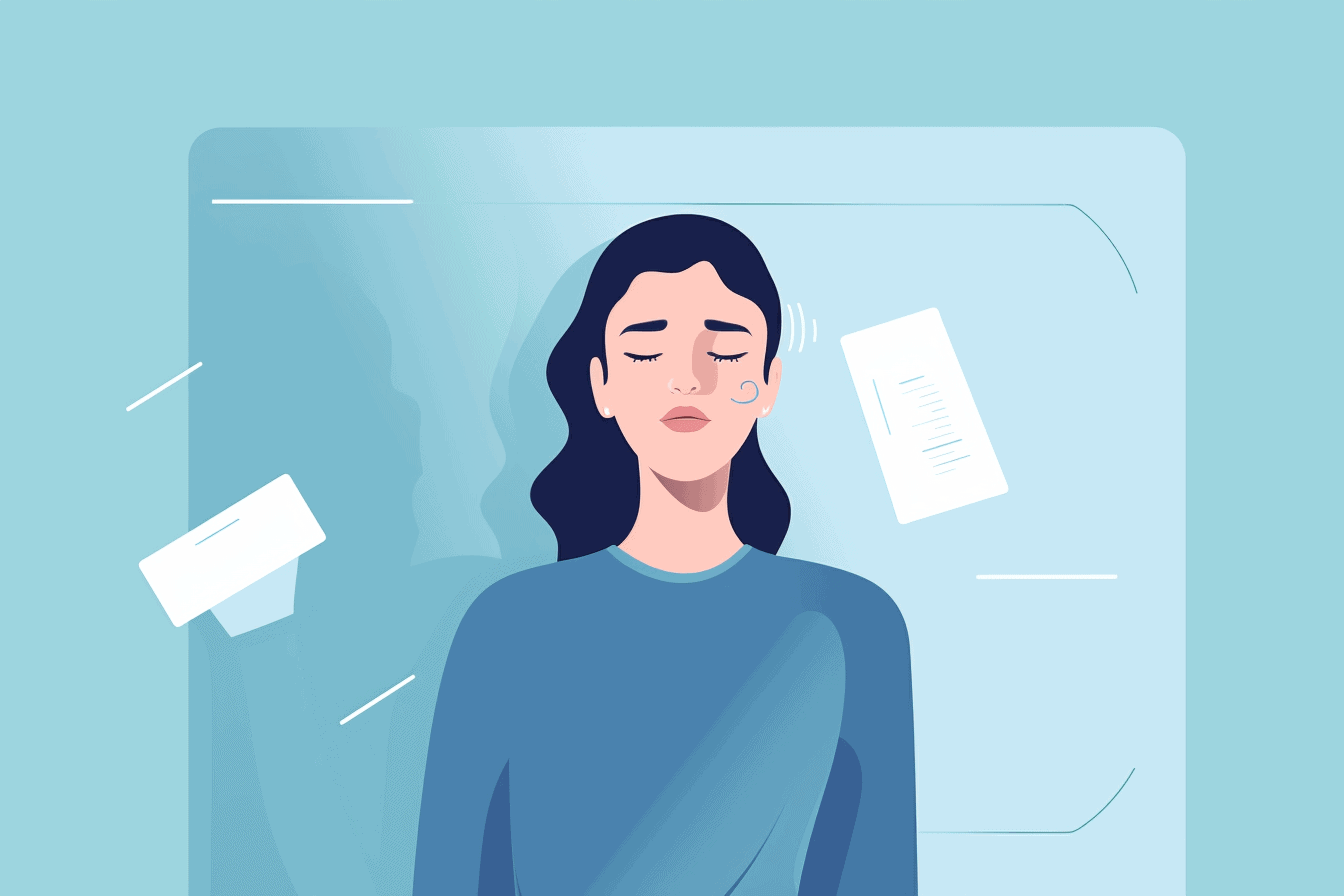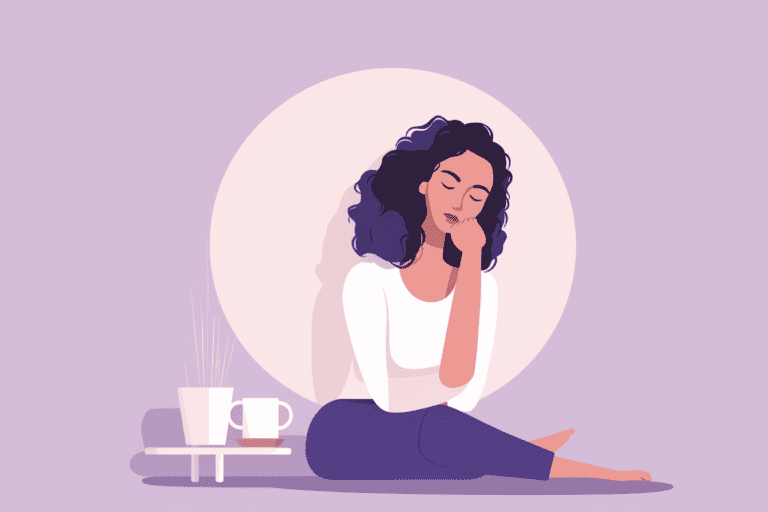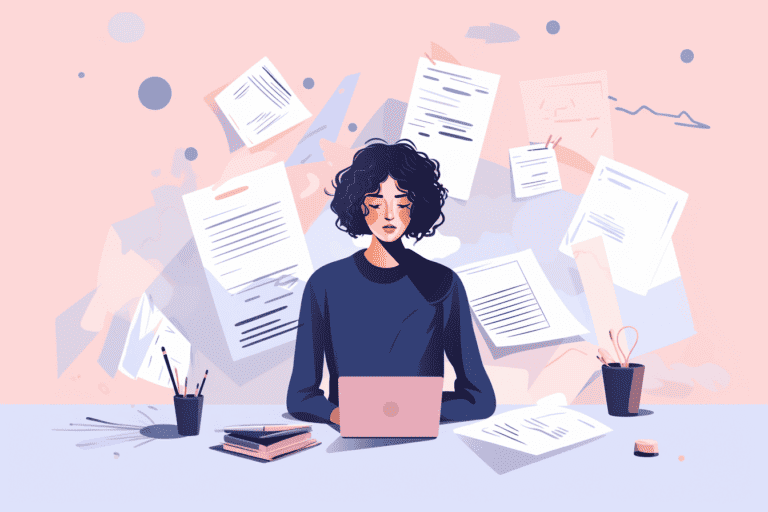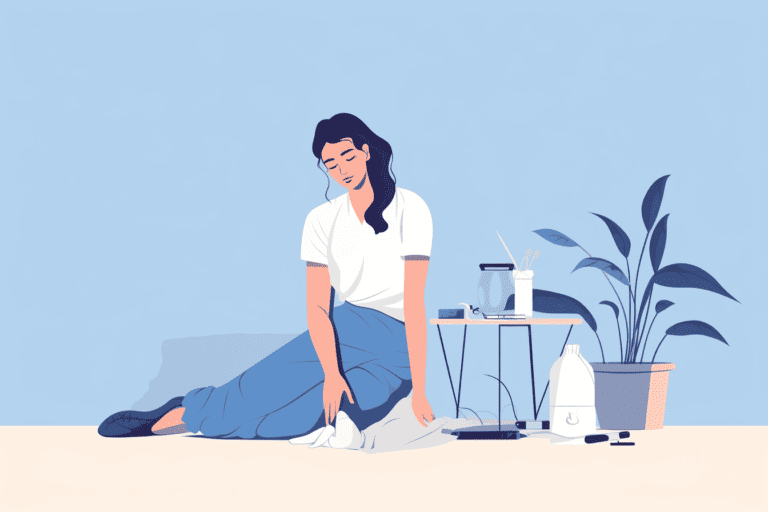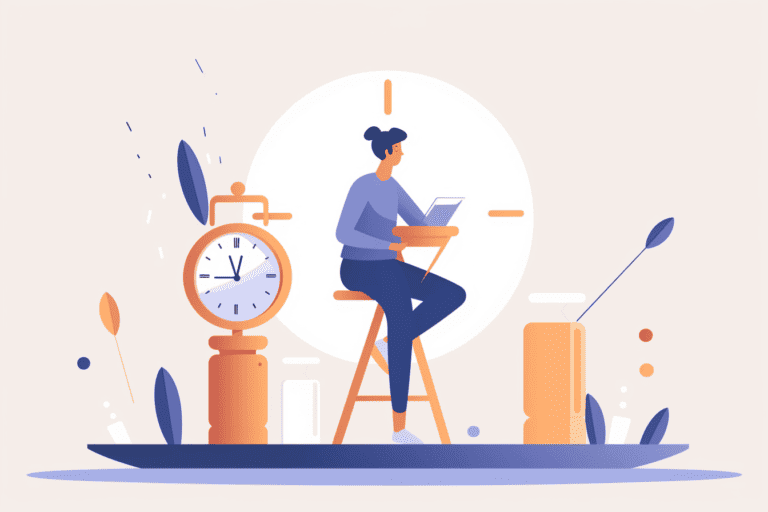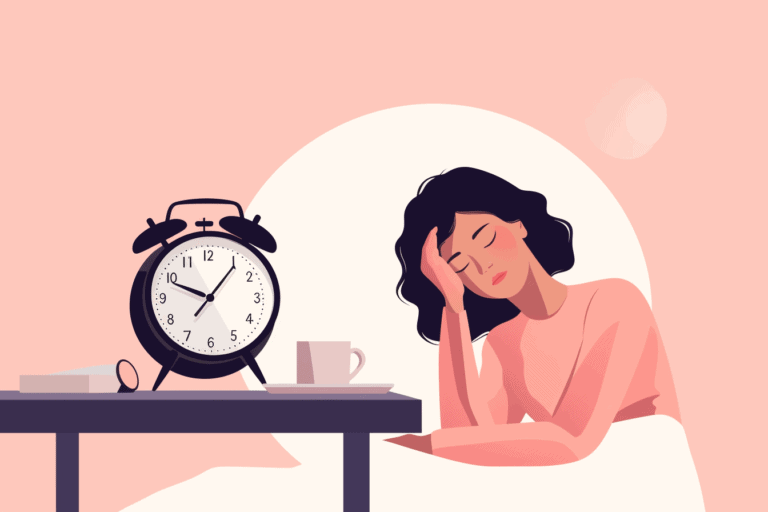Why is My ADHD Worse on Some Days? What To Do to Improve Focus
Do you ever wake up and feel like nothing is going right and that your Attention Deficit Hyperactivity Disorder (ADHD) symptoms have dramatically increased?
You can’t help but ask yourself…
Why is my ADHD worse on some days?
Well, many adults living with ADHD can relate to this feeling, as they often report more severe ADHD symptoms on certain days.
Picture this: You wake up with a clear goal in sight and be ready to tackle it, but then you just find yourself spinning your wheels due to lack of focus or difficulty concentrating on the task at hand.
Then other days it feels like everything clicks – nothing seems too hard and tasks get done quickly and easily without effort.
If this happens to you, know that it is not a sign of failure or lack of progress; there are many factors that contribute to fluctuations in your Adult ADHD symptoms.
In this blog post, we will explore what might be causing these changing levels of focus and productivity for people with ADHD – along with practical strategies you can implement today for improved concentration and better quality of life.
Read on to learn how you can take back control of your workflow when ADHD brings unexpected turbulence!
What Your Worst Days with ADHD May Feel Like
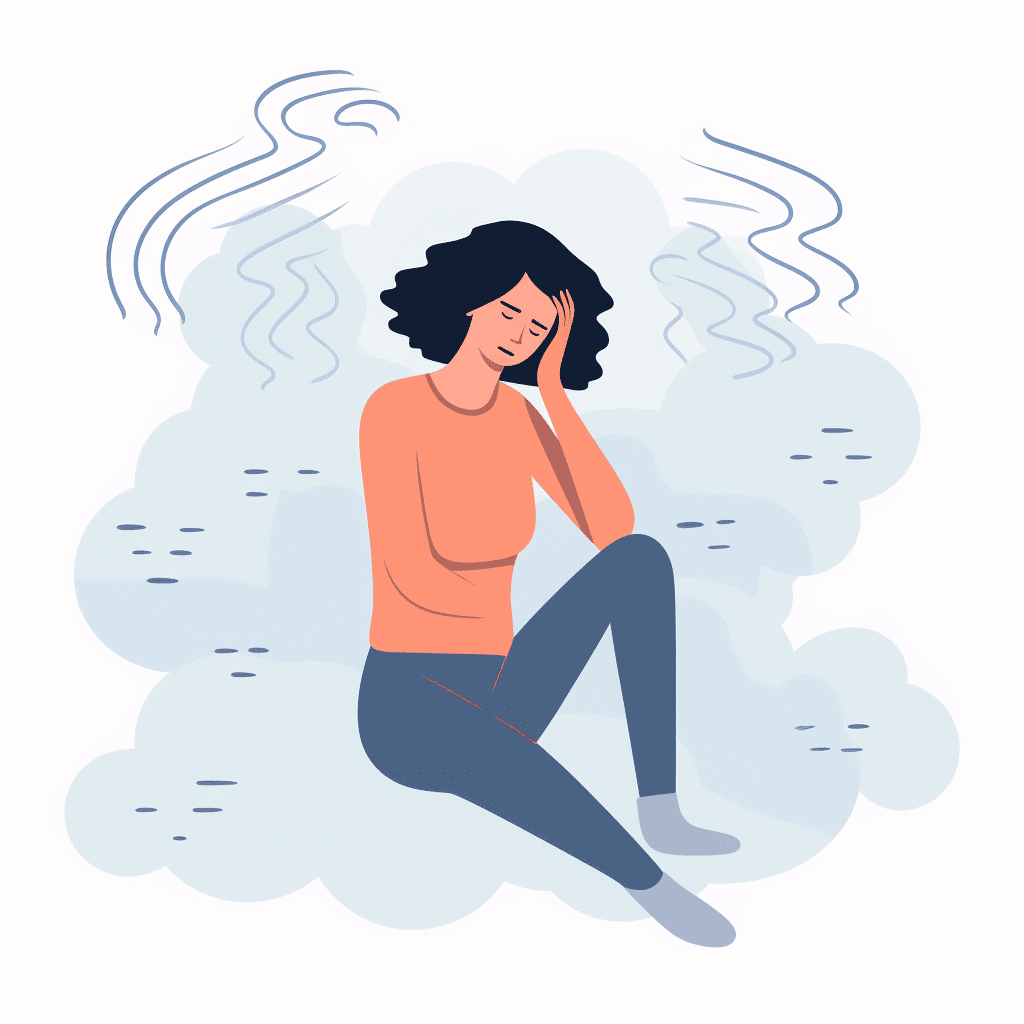
On bad ADHD days, you might experience worsen symptoms including brain fog and heightened stress levels. It feels like everything is harder, and you might feel worse than usual.
Simple tasks become challenging, and it’s tough to stay focused. The brain feels scattered, making it difficult to make decisions or remember things.
Time seems to slip away, and you might forget important things or get overwhelmed by responsibilities. Even making basic decisions can feel really difficult.
Also read: ADHD difficulty waking up in the morning
ADHD and Depression
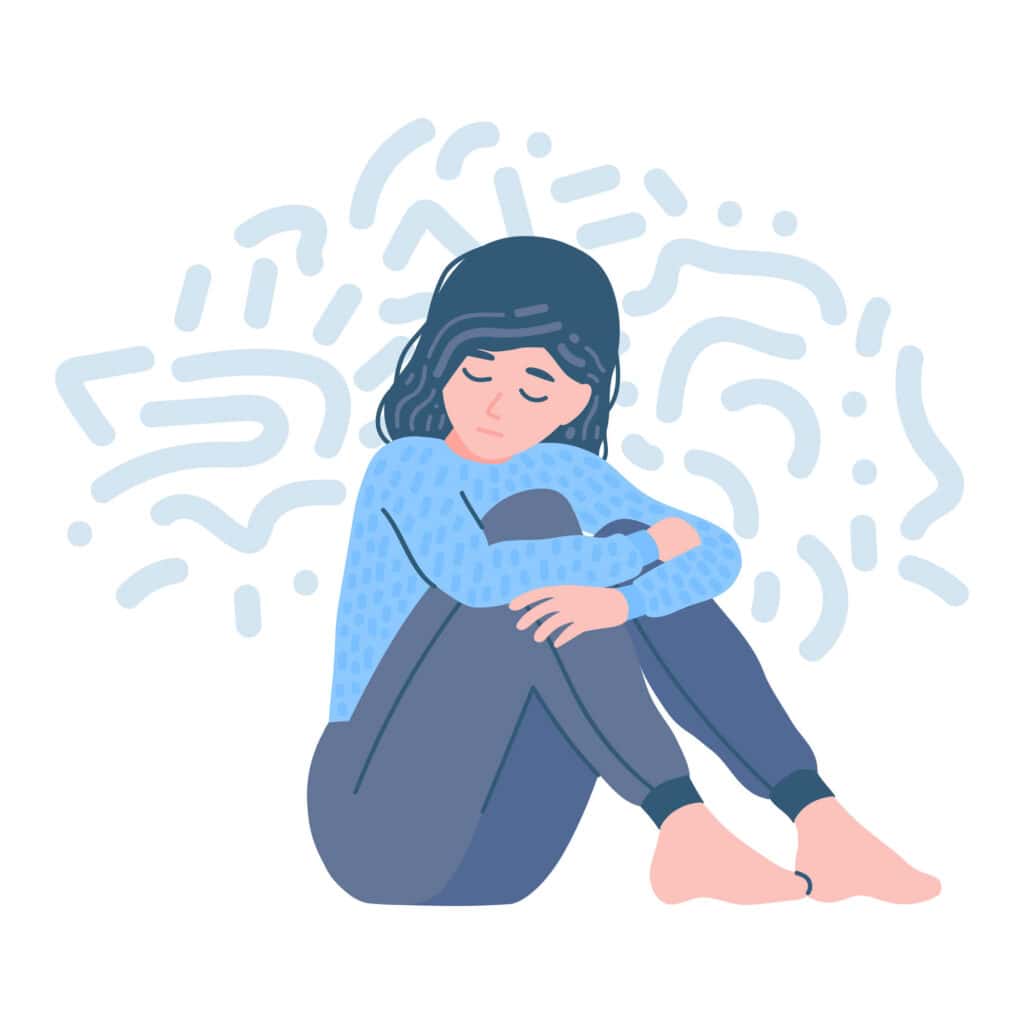
Did you know that alongside ADHD, other mental health conditions may also co-occur, like depression? It’s not uncommon for these two to show up together, and it can make things feel even more challenging.
When you’re dealing with both ADHD and depression, the symptoms can sometimes play off each other, making things feel a bit tougher.
With that in mind, let’s explore a few common factors that can intensify ADHD symptoms.
7 Factors That Aggravate Adult ADHD
From lack of sleep to excessive stress, these seven factors could make your ADHD symptoms worse.
1. Lack of Physical Activity
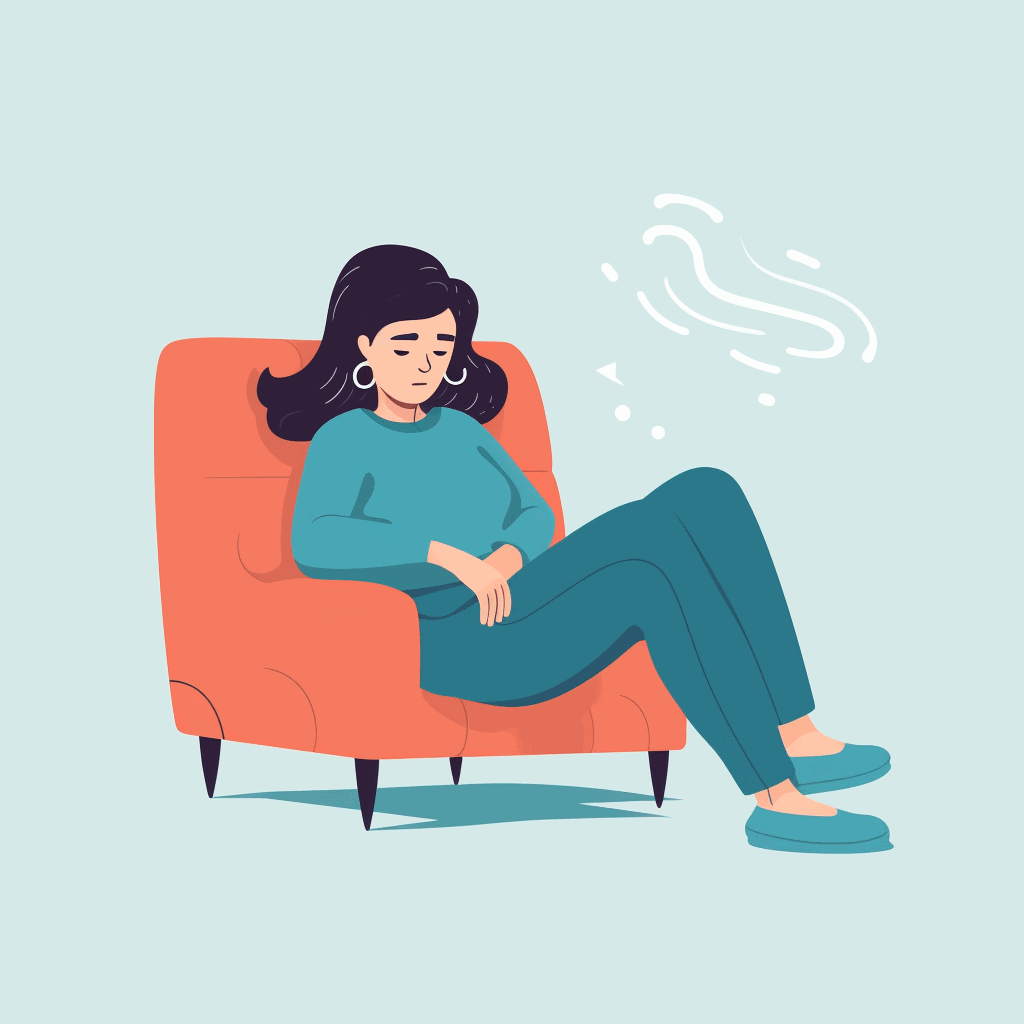
Physical activity isn’t just about staying fit; it can significantly impact your ADHD symptoms. According to a study published in the Journal of Attention Disorders, engaging in aerobic exercises like running, cycling, or swimming can improve attention, focus, and impulse control in both adults and children with ADHD.
That’s why I encourage you to incorporate regular exercise into your daily routine. It doesn’t have to be anything crazy – find activities you genuinely enjoy, whether it’s going for a walk, dancing, cycling, or doing yoga. The key is to make it sustainable and something you look forward to.
Personally, I love going for a walk in the morning. It not only wakes up my body but also clears my mind, setting me up for a more focused day. It doesn’t have to be a big time commitment. Even just 20-30 minutes of movement can make a difference.
2. Unhealthy Eating Habits
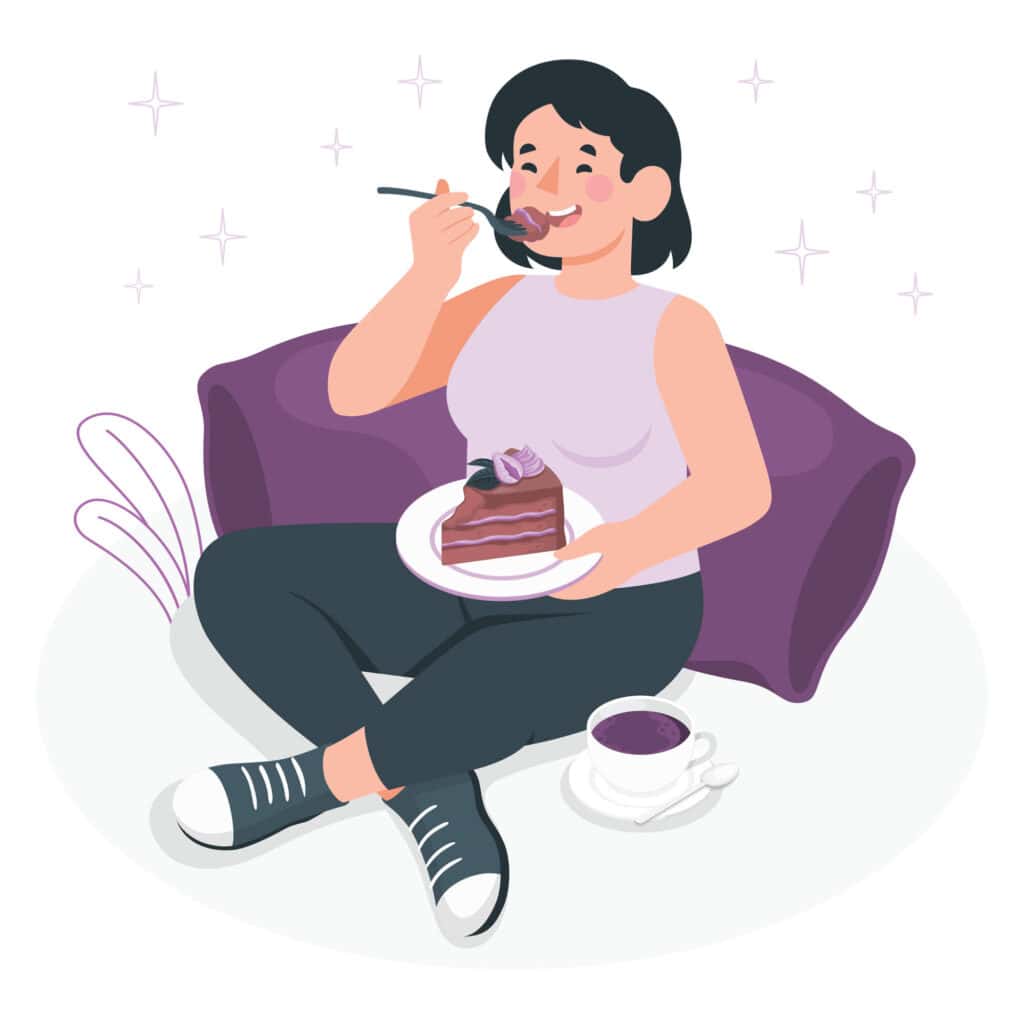
You know what they say – you are what you eat. When it comes to managing ADHD symptoms, fueling your body with the right nutrients is essential.
Consider incorporating healthy food items like salmon or chia seeds into your diet – They are packed with omega-3 fatty acids that can do wonders for your brain function and cognitive health.
And here’s a pro tip to kickstart your day on the right foot – never skip breakfast! Make it a habit to enjoy a morning meal that includes a mix of nutritious food such as a hearty omelette or a balanced smoothie.
Instead of indulging in too much junk food, try to stick to whole, unprocessed foods. Watch out for additives like food coloring – they can mess with your energy levels and mood swings.
3. Disrupted Sleep Patterns

Quality sleep is a potent ally when it comes to effectively managing ADHD and mental health conditions. To optimize our sleep, here are a few tips:
- Follow a consistent bedtime routine: Establish a calming routine before sleep to signal your brain that it’s time to wind down.
- Reduce screen time before bed: Limit exposure to screens before bedtime to avoid disruptions to your sleep-wake cycle.
- Create a sleep-friendly environment: Keep your bedroom dark, quiet, and cool to promote better sleep.
- Stick to a regular sleep schedule: Go to bed and wake up at the same time daily to regulate your body’s internal clock.
- Limit caffeine and stimulants: Avoid consuming these substances close to bedtime, as they can interfere with falling asleep.
To ensure that caffeine doesn’t disrupt your sleep, it’s best to avoid consuming any caffeinated beverages or stimulants at least six hours before bedtime. This means cutting off your caffeine intake around mid-afternoon or early evening, depending on when you typically go to bed.
Also read: Why does Coffee Make Me Sleepy with ADHD?
- Manage stress and anxiety: Practice relaxation techniques to reduce stress and improve sleep quality.Explore the link between ADHD and sleep disorders with the National Institute of Mental Health (NIMH). Get insights and strategies to manage sleep difficulties at www.nimh.nih.gov/health/publications/adhd-and-sleep-disorders.
4. Environmental Overwhelm
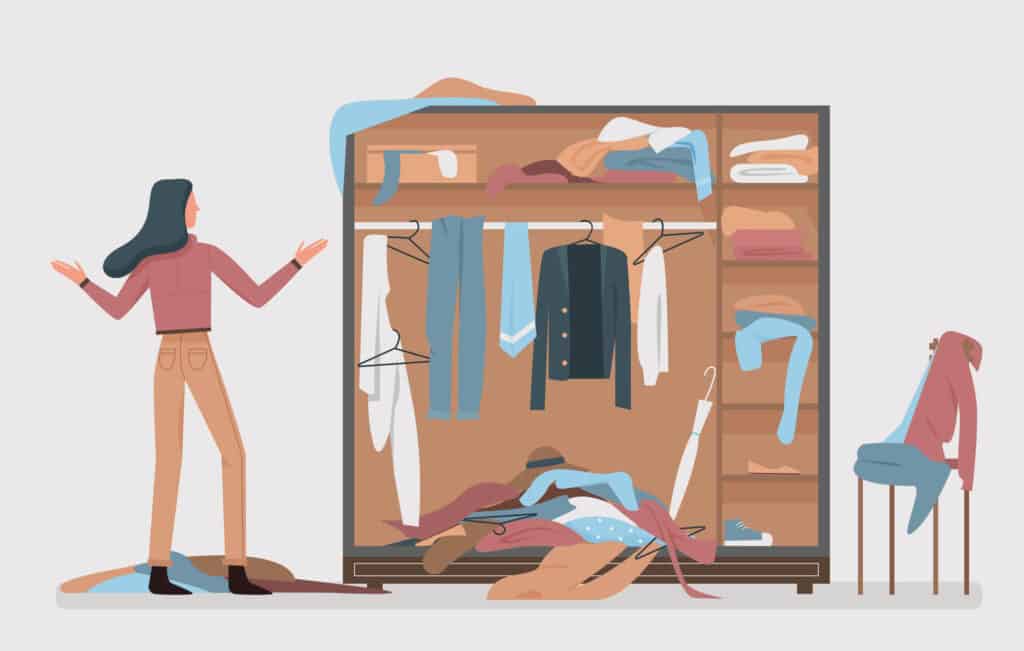
Cluttered surroundings and having too much stuff can be a real challenge for those of us with ADHD. The sight of scattered items and disorganized spaces can overwhelm our minds, making it difficult to concentrate and stay on track.
Now, here’s a personal tip that has truly made a difference in my life – the “10-minute declutter.“
Whenever I feel my environment getting out of control, I set a timer for just 10 minutes and commit to tackling the clutter. It’s amazing how much you can accomplish in such a short time! This simple practice not only clears my space but also helps me feel more in control and less overwhelmed.
5. Stress and Rejection
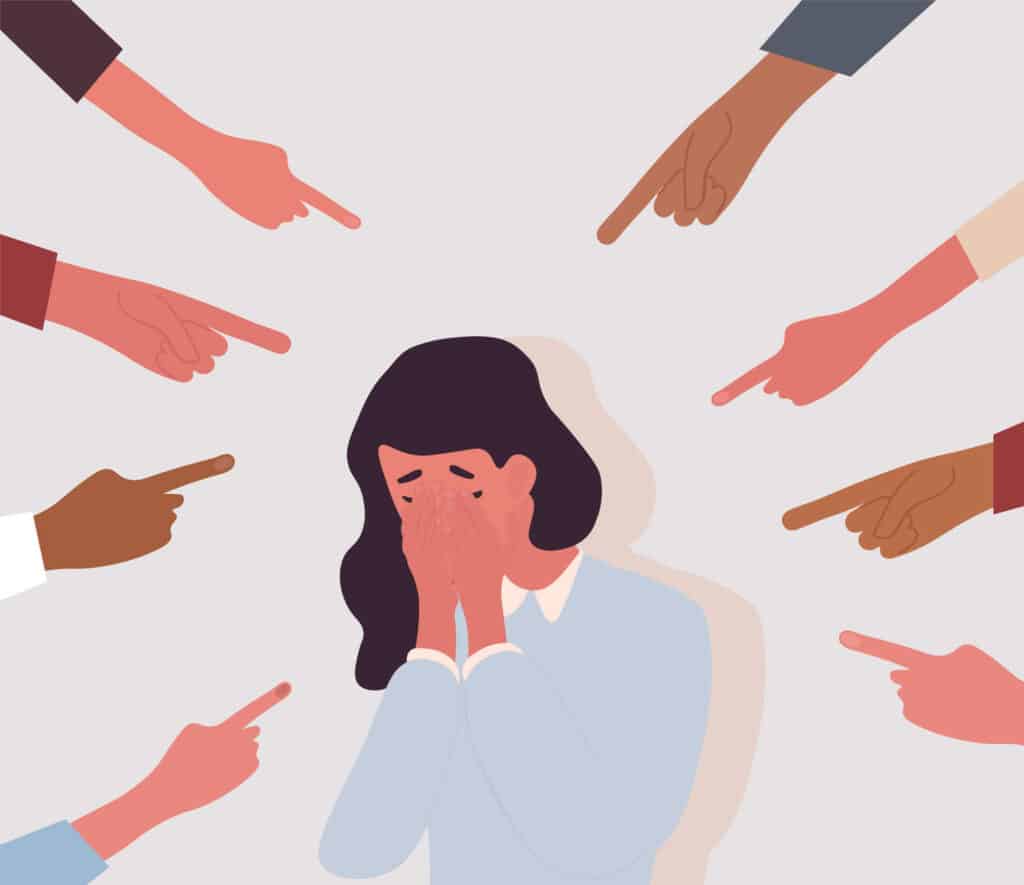
For ADHD adults, rejection can be like a punch in the gut. Those emotions go wild, and anxiety takes over.
But don’t let it get the best of you.
You are worth so much more than any rejection. Focus on your strengths and the things you’ve achieved. Take a moment to breathe and remind yourself that everyone faces rejection.
Embrace mindfulness to stay centered and at peace. Use your creativity or sweat it out to deal with those feelings constructively. You’ve got the power to bounce back!
6. Excess Screen Time

We all know how tempting it is to get lost in the world of screens – be it social media, video games, or binge-watching our favorite shows. But did you know that too much screen time can indeed impact the focus and cognitive abilities of adults with ADHD?
According to a study published in the journal JAMA Pediatrics, increased screen time in adults with ADHD was associated with lower scores in cognitive tests.
So, how can we break free from the digital vortex and manage our ADHD symptoms better? One approach is to set specific time limits for screen usage. For instance, you could allocate a certain amount of time each day for recreational screen activities and then spend the rest of the day engaged in other pursuits.
Instead of scrolling through social media during breaks, why not step outside for a quick walk or engage in a hobby that you enjoy? Finding alternative activities not only reduces screen time but also allows us to focus on tasks more effectively.
7. Ineffective Medication Management
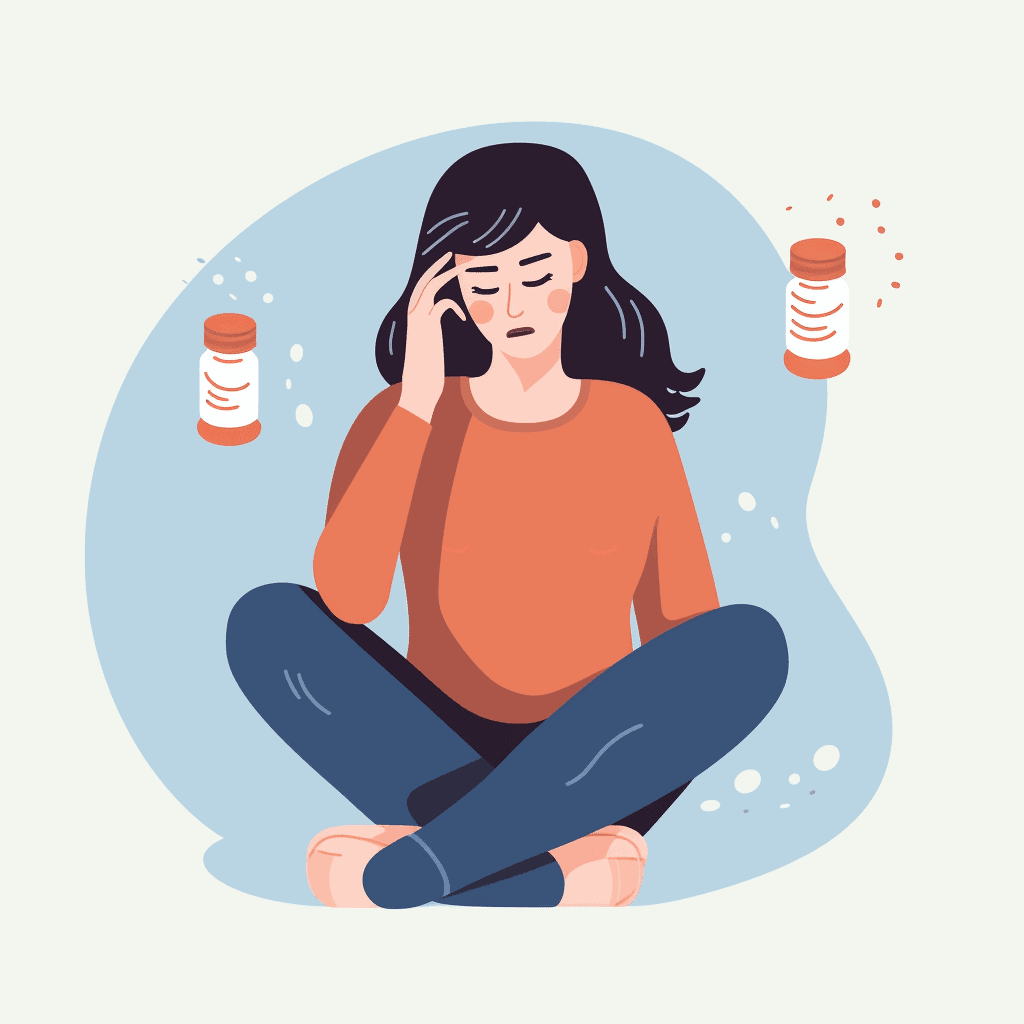
Finding the right ADHD meds is essential, as taking the wrong medication can lead to ineffective treatment and exacerbate ADHD symptoms. But sometimes, it’s like playing a game of trial and error, and that can be frustrating.
I get it – finding the right balance can take time and patience. The wrong treatment and medications can make anxiety worse and exacerbate symptoms, leaving you feeling frustrated and stuck.
Communication is key here – open up to your healthcare team, share your experiences, and together, find the best path to manage your ADHD.
Effective Ways to Cope With Worsen ADHD symptoms
Create a Structured Routine
A well-organized schedule provides stability and makes it easier to complete tasks. Prioritize and break larger tasks into smaller steps.
Seek Social Support
Reach out to understanding friends, family, or support groups. Sharing your journey with others can be helpful in processing emotions and finding solutions.
Utilize Coping Strategies
Find what works best for you during difficult moments. Use sensory distractions or engage in physical activity to recharge your brain.
Journaling and Self-Reflection
Writing down thoughts and emotions helps identify patterns and triggers. Embrace self-reflection to boost self-confidence and motivation.
Mindfulness and Relaxation Techniques
Mindfulness meditation, deep breathing, and relaxation exercises are powerful tools that can reduce stress, improve attention, promote brain health, and enhance executive function. Learn more about how to relax with ADHD.
3 Ways to Immediately Increase Focus and Concentration
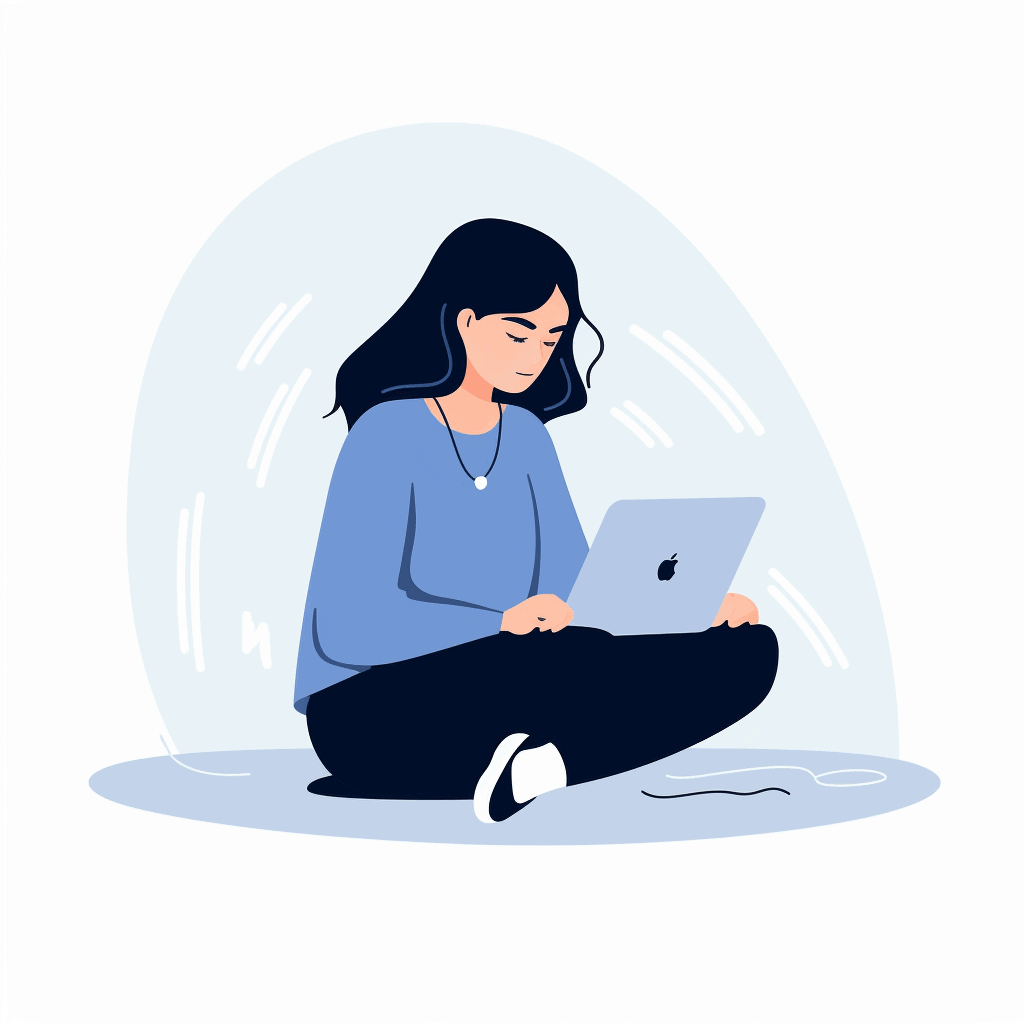
- Deep Breathing
When you find it challenging to concentrate, take a moment to practice deep breathing. Close your eyes, inhale deeply through your nose, and exhale slowly through your mouth. Focus on the sensation of your breath as it enters and leaves your body. This simple technique can quickly calm your mind, reduce distractions, and improve your ability to focus on the task at hand.
- Change Your Environment
Sometimes, a change of scenery can do wonders for your focus. If you’re feeling stuck or overwhelmed, move to a different room or find a quiet corner where you can work without distractions.
Clear away any clutter and create a clean and organized space. The change in environment can help reset your mind and make it easier to concentrate on your tasks.
Related: How to clean your room with ADHD
- Use a Timer
Set a timer for a short period, like 25 minutes, and challenge yourself to work on a specific task until the timer goes off. This technique, known as the Pomodoro Technique, can make tasks feel more manageable and less overwhelming.
Knowing that you only need to focus for a short time can increase your motivation and make it easier to get started. After each focused interval, take a short break before starting the next session.
Final Thoughts
Living with adult ADHD can be quite the journey, but understanding and managing the symptoms can lead to a more fulfilling life. Here are some key things to keep in mind:
Get Professional Help: It’s super important to get an accurate ADHD diagnosis from a doctor. They can guide you through the available ADHD treatment options and help you figure out what’s best for you.
Embrace a Healthier Lifestyle: Try to incorporate regular physical activity and a balanced diet with healthy food choices. Eating well can have a positive impact on your ADHD symptoms and overall well-being.
Practice Mindfulness and Manage Stress: Be mindful of your stress levels and try to avoid stuff that can make your symptoms worse, like too much junk food or spending too much time glued to screens.
Build a Support System: Surround yourself with understanding and caring people who can offer support and empathy along the way.
Remember, ADHD doesn’t define you. Embrace your uniqueness and seek support when you need it. You’ve got what it takes to thrive and live your best life!

